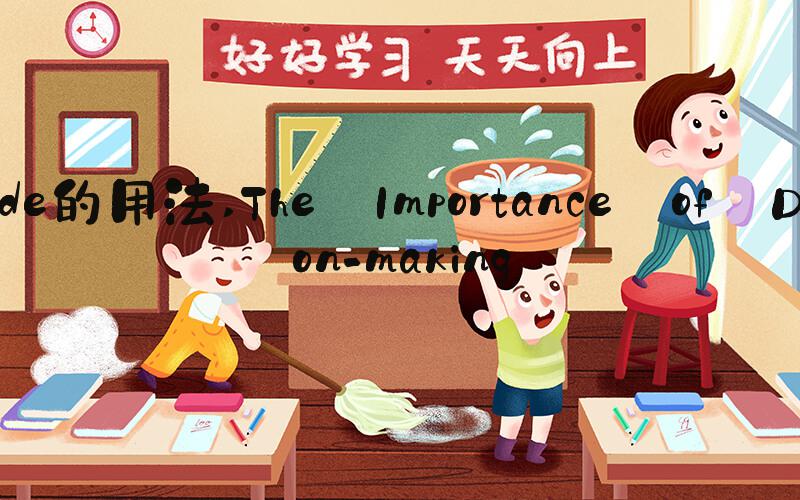
Introduction
Decide is a verb that means coming to a conclusion or making a decision. It is a process that involves evaluating options and selecting the best course of action. The ability to decide is an essential skill that everyone needs to develop, as it determines the quality of our lives and our success in achieving our goals.
The Importance of Decision-making
Sound decision-making is crucial for individuals, organizations, and societies. It is what enables us to solve problems, create opportunities, make progress, and adapt to changing circumstances. Good decisions can lead to personal growth, financial stability, and fulfilling relationships. Conversely, poor decisions can result in unwanted consequences, failure, and regret.
Therefore, it is important to understand the factors that influence decision-making and how to enhance our decision-making ability. These include cognitive biases, emotions, values, information, past experiences, and the decision-making context. By becoming more aware of these factors and learning how to analyze and prioritize them, we can make more informed and effective decisions.
The Process of Decision-making
Decision-making is a complex and iterative process that can be divided into several stages. The first step is to identify the problem or opportunity that requires a decision. This involves clarifying the goals, risks, and constraints of the decision. The next step is to generate options or alternatives that address the problem or opportunity. This requires creativity, open-mindedness, and a willingness to explore new possibilities.
Once the options have been identified, the next step is to evaluate and compare them based on criteria such as feasibility, effectiveness, efficiency, and ethical implications. This requires analyzing the pros and cons of each option and prioritizing them according to their relevance and impact on the decision criteria. The final step is to select and implement the best option and monitor its outcomes to ensure that it achieves its intended goals.
The Challenges of Decision-making
Despite the benefits of good decision-making, there are many challenges that can hinder our ability to make sound decisions. These include cognitive biases, such as confirmation bias, where we tend to favor information that confirms our beliefs and ignore contradictory evidence. Emotional factors, such as fear, anxiety, and impulsivity, can also cloud our judgment and lead us to make irrational decisions.
Other challenges include the lack of information or knowledge, uncertainty, conflicting values or preferences, and the pressure to make decisions quickly. These challenges can be overcome by using decision-making tools and techniques, such as decision trees, SWOT analysis, cost-benefit analysis, and group decision-making processes.
Conclusion
In conclusion, decision-making is a critical skill that requires practice, awareness, and continuous improvement. By understanding the factors that influence decision-making, following a systematic process, and using appropriate tools and techniques, we can make better decisions that lead to positive outcomes. Whether we are making decisions for ourselves, our families, our organizations, or our communities, we have the power to shape our destiny and create a better future.

暂无评论
发表评论